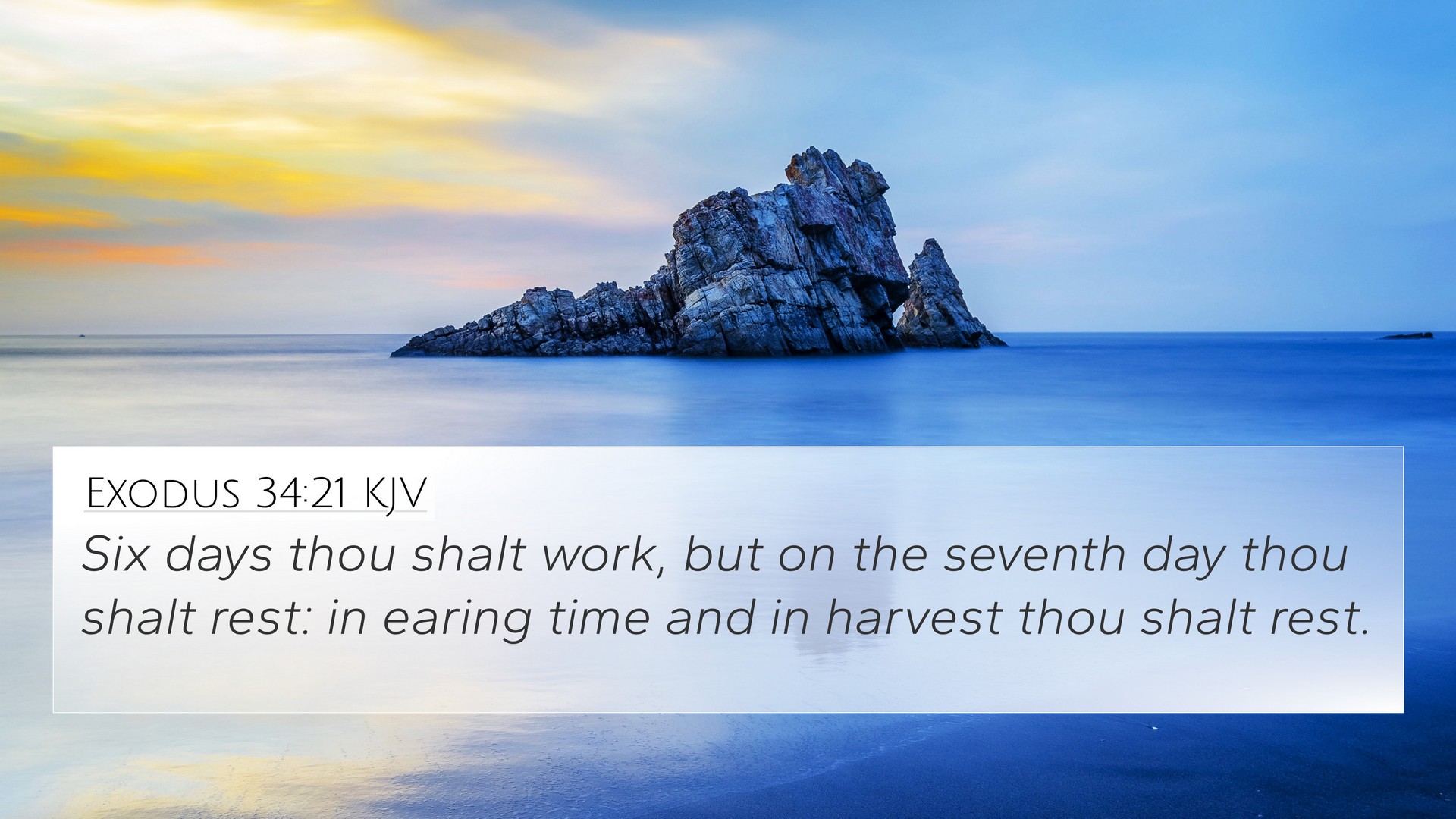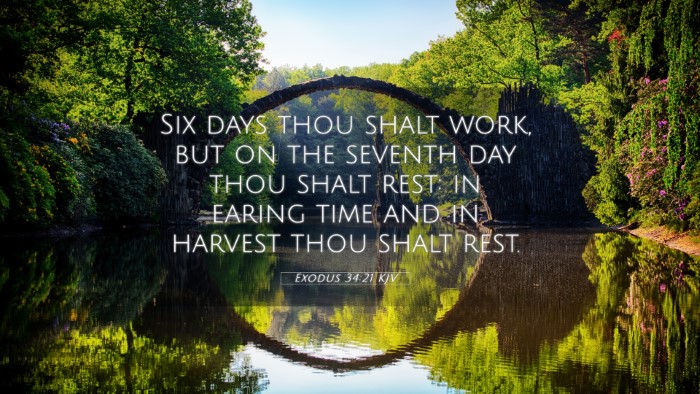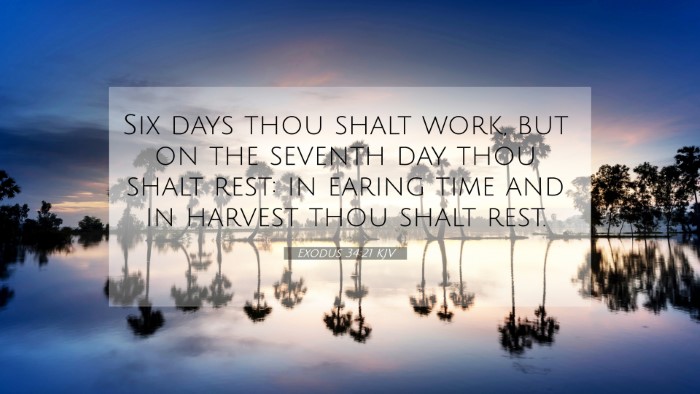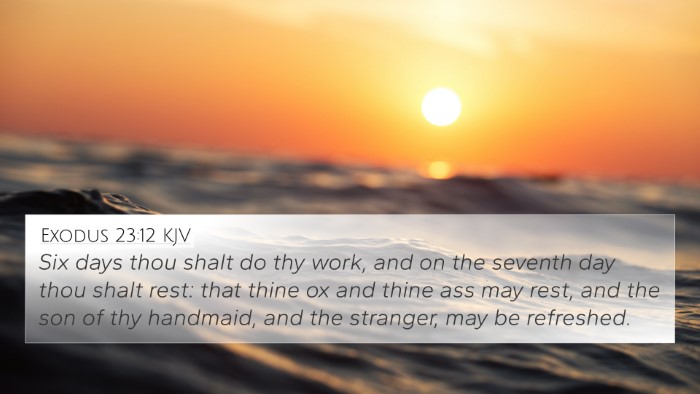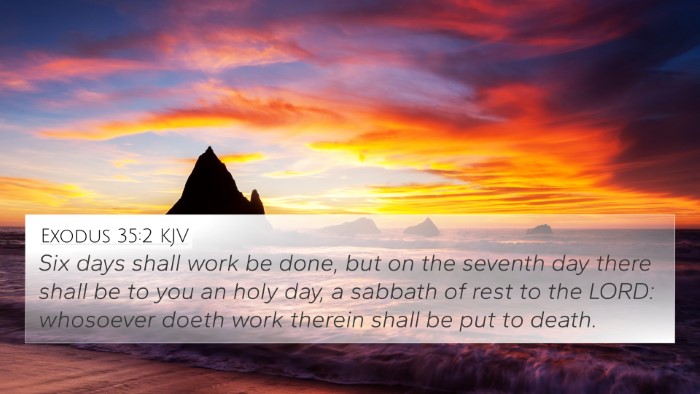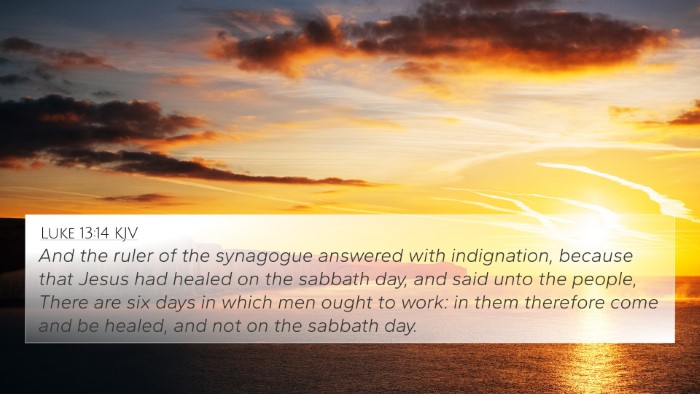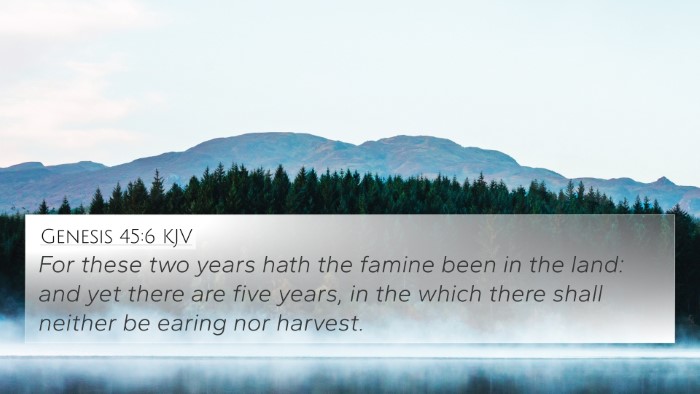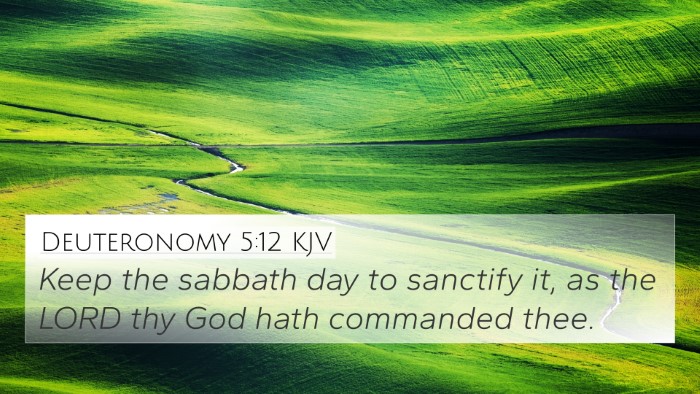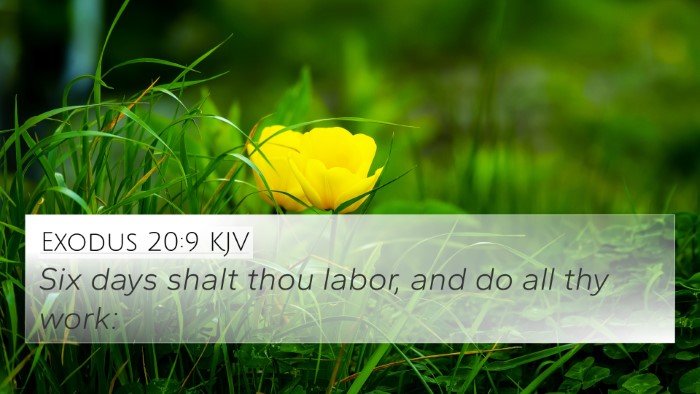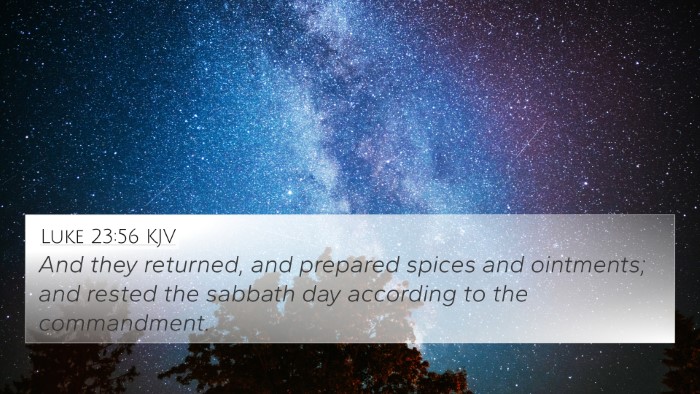Understanding Exodus 34:21
Exodus 34:21 states: "Six days thou shalt work, but on the seventh day thou shalt rest: in earing time and in harvest thou shalt rest." This verse emphasizes the importance of rest and observance of the Sabbath amidst the laborious seasons of agricultural life.
Context and Meaning
This scripture is situated in a broader narrative where God is renewing His covenant with Israel, showcasing His expectations for their communal and individual lives. The mandate to rest on the Sabbath is not merely a command but serves multiple significant purposes.
- Divine Command: The directive originates from God's authority, emphasizing obedience (Matthew Henry).
- Spiritual Renewal: It underscores a time for spiritual refreshment, allowing individuals to reconnect with God (Adam Clarke).
- Social Justice: It promotes equality, allowing even servants and animals to rest, reflecting God's concern for all creation (Albert Barnes).
- Life Balance: This verse indicates the necessity of balance between work and rest, vital for physical and mental health.
Thematic Connections and Cross-References
Understanding Exodus 34:21 requires examining its connections with other scripture that expands upon the themes of work, rest, and divine law.
Cross-References
- Genesis 2:2-3: The creation account, illustrating God resting on the seventh day.
- Exodus 20:8-10: The fourth commandment, which emphasizes the sanctity of the Sabbath.
- Deuteronomy 5:14: Resting from labor similar to the Exodus narrative, reiterating social equity.
- Mark 2:27: Jesus teaches about the Sabbath’s purpose, highlighting mercy and human need.
- Matthew 11:28-30: A call to rest in Him, linking physical rest with spiritual refuge.
- Hebrews 4:9-10: Discussion on the Sabbath rest which connects to God's ultimate rest.
- Colossians 2:16-17: Points to the fulfillment of the Sabbath in Christ, suggesting its deeper meaning.
Comparative Analysis
Analysing Exodus 34:21 alongside these references shows a continuity of the theme of rest throughout the Bible, which serves as a reminder of the rhythm between work and rest established by God. This understanding enhances our view of both Old and New Testament teachings, contributing to a comprehensive theological framework.
Connections to New Testament Teachings
In the New Testament, the principles in Exodus 34:21 are often reinterpreted through the teachings of Jesus and the Apostles. They invite followers to find true rest not just in physical abstention from labor but through a relationship with Christ.
Conclusion
Exodus 34:21 serves as a crucial reminder of the necessity of rest that God has woven within the fabric of creation. It does not only guide Israel's rhythm of life but carries implications for Christians today about the importance of rest in fostering spiritual and physical well-being.
Tools for Further Study
For those interested in diving deeper into the themes of this verse, many Bible reference resources such as Bible concordance can provide aids in cross-referencing Bible study. Resources include
- Comprehensive Bible cross-reference materials.
- How to use Bible cross-references effectively.
- Identifying connections between Old and New Testament.
How to Use This Study
This analysis can be beneficial in sermon preparation and Bible study, enabling one to elaborate on the mandate of rest and its divine significance. Additionally, exploring the parallels between Exodus 34:21 and related scriptures can offer profound insight in individual and communal practices of faith.
